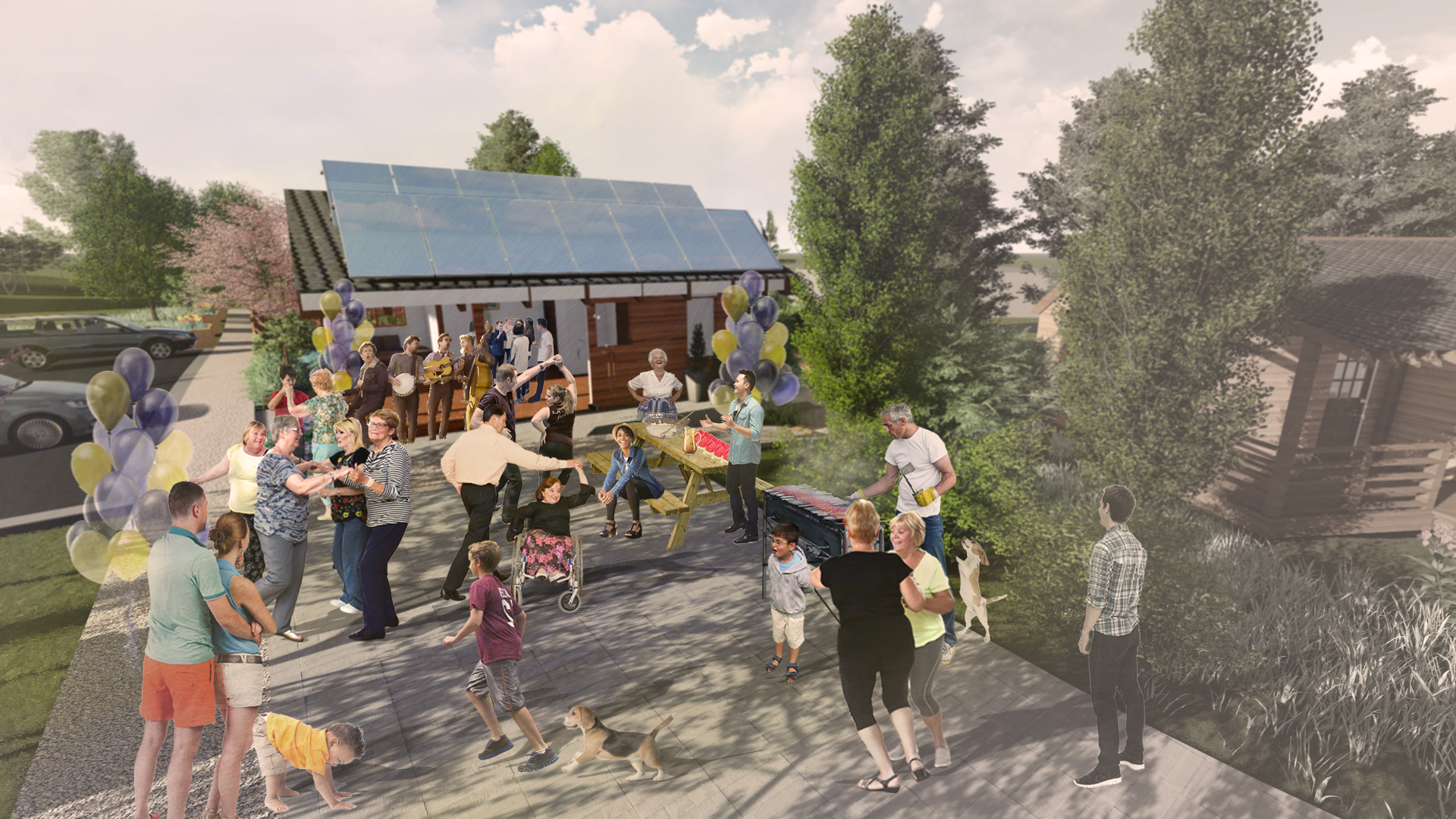Recent landscape architecture graduate Luke Nichols (M.L.A. ‘18) knows first-hand the struggles many Minnesotans face when trying to find affordable housing.

Raised in a single-parent household, Nichols experienced temporary periods of homelessness while growing up, “I understand the gravity of the situation facing many unstably-housed families today.”
With his experiences in mind, Nichols focused his capstone project on creating affordable housing in Duluth, Minnesota. Selecting the city for his project was a no-brainer. “This project truly evolved from the Design Duluth Studio. The studio is the result of a nine-year partnership between the College of Design and the Duluth community. In the studio students identify challenges the city is facing and then produce landscape and large-scale architectural design solutions,” explained Nichols.
Entitled The Cabin Cooperative, Nichols’ capstone proposes a plan to build affordable small-scale housing, or “tiny homes,” on vacant land located throughout the city. “The goal was to offer a design solution that didn’t require large-scale investment or disrupt existing neighborhoods but would still connect people with centrally-located resources such as jobs and grocery stores,” said Nichols.
To inform the creation of his Cabin Cooperative Nichols interviewed residents of Duluth’s mobile home communities. He also examined Duluth building codes and zoning regulations, different financing options, architectural designs, and how each component relates to each other. “The more I researched, the more I learned about the socio-economic causes behind the housing shortage and the barriers to constructing more affordable options.”
While his capstone is primarily focused on providing more affordable housing, the final plan has the added benefit of putting vacant land throughout Duluth to good use. “Duluth has a shortage of large, flat and centrally-located land, but it does have an abundance of tax-forfeited vacant land that sits idle. It seemed like a no-brainer to leverage the political will to develop these slivers of land into Cabin Cooperative communities,” said Nichols.
One of the most difficult aspects for Nichols to plan out was the financing for the proposed Cabin Cooperative. “If my project was going to have legs, I knew I had to outline the project’s financing.” Nichols reached out to professionals in the field for cost estimates and referenced how-to guides to create research-based estimates for the expense of the Cabin Cooperative. “When I came to the table with a design that not only met zoning requirements but also had a financial model, people were very receptive. It has taken on a new life after “project completion” that would not have happened in a normal academic project.”
The enthusiastic response from Duluth stakeholders has caught Nichols by surprise. “I knew from the beginning that Duluth was eager to try something different. Duluth’s mayor, Emily Larson, has been an avid supporter of my project and has long advocated for more affordable housing. The non-profit community in Duluth has also experimented with it too, but never at the scale I am proposing.”
To date, Nichols has spoken with developers, lenders, and state agencies to see how he can begin forming an LLC to take the project to the next level. “In the end, I want to both change mindsets about how to provide affordable housing and change the Duluth housing environment in order to offer more options to families like my own.”
Want to learn more? You can contact Nichols at [email protected].
All images and video courtesy of Luke Nichols.
Early interaction with nature has been proven to increase children's capacity for creativity, critical concentration skills, and relationship building.
Our planet’s changing climate will radically transform not only our landscapes but the industries that have developed around them. In her capstone, M.L.A. student Rachel Valenziano explores how to redevelop areas of the Louisiana coastline that are currently used by the oil and gas industry.
On display at the Hennepin History Museum, Owning Up: Racism and Housing in Minneapolis explores the history of racial housing discrimination in Minneapolis through the stories of three Black families.





